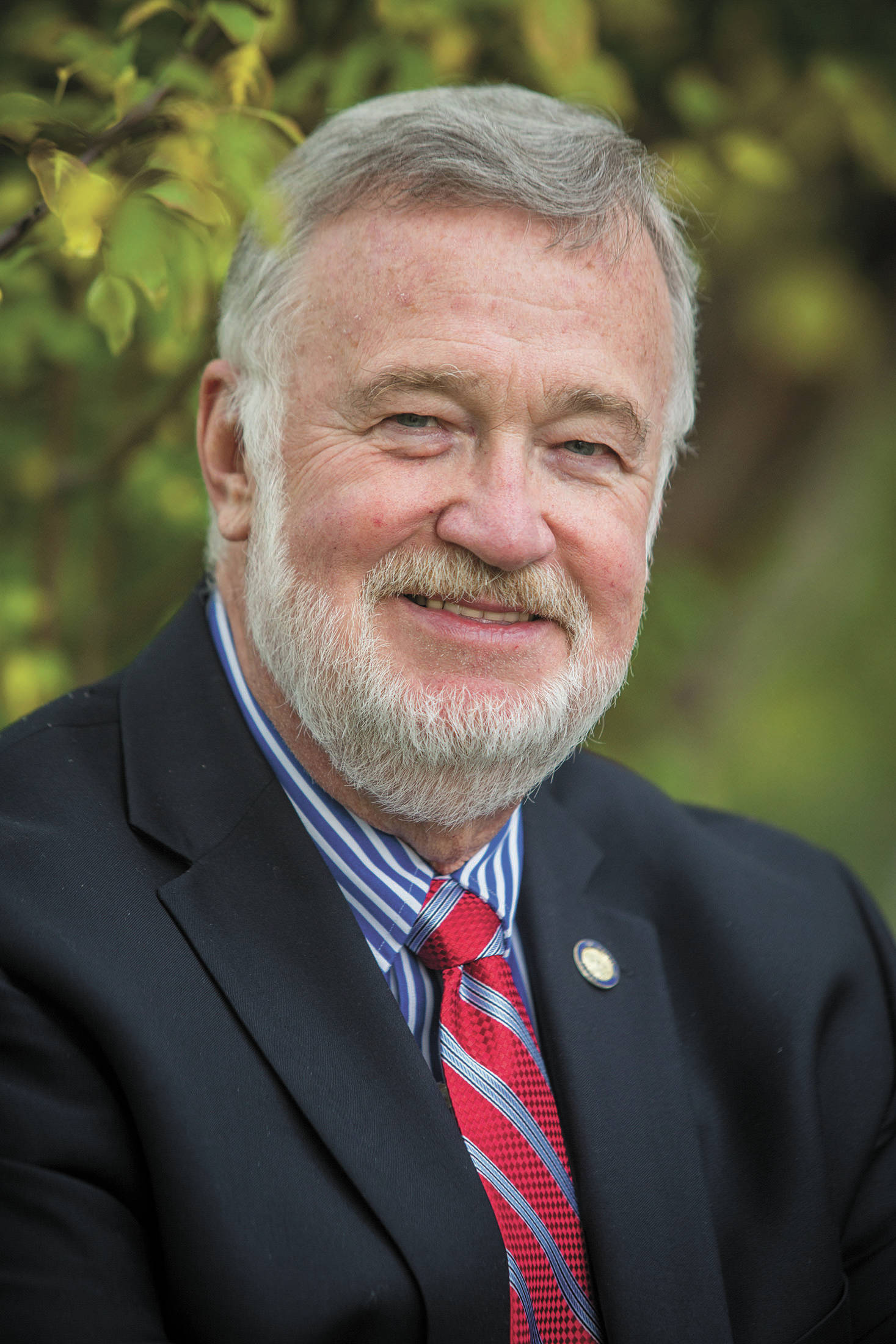Incumbent Gary Stevens is making a bid to keep his seat in the Alaska Senate.
The senator for District P — which covers Kasilof, Homer, the southern Kenai Peninsula, Kodiak, Cordova, Seldovia and a southern portion of Soldotna — is running in the August primary election in the Republican Party. He faces John Cox of Anchor Point as a challenger in that race.
An Alaska resident since 1970, Stevens is a retired educator who served in the House of Representatives from 2001-03 and who has served in the Alaska Senate since 2003. He’s been the chair of the legislative council committee since 2015 and also chairs the education committee.
“This is the toughest year I think I’ve ever experienced,” he said.
Stevens said the Legislature did its part in helping with the COVID-19 pandemic, in terms of making sure the governor had the authority to use CARES Act funds the way the administration wanted to. He is a little unhappy with how slowly the funds have gone out to communities, though.
Another concern is how much money the state will potentially have to return if it is not sent out to and utilized by Alaska businesses, Stevens said.
Turning to the next budget cycle, Stevens has his eye on balancing a difficult budget.
“We’re facing enormous problems,” he said. “Primarily it’s financially. We’re not getting the revenue we used to get from oil.”
The Alaska Journal of Commerce reported in June that the COVID-19 pandemic has helped push oil production in Alaska to the lowest it’s been since the start of the Trans-Alaska Pipeline System in 1977.
Additionally, Stevens noted the fact that the state has spent down much of its savings over the past few years and cannot afford to continue doing so. The Anchorage Daily News reported on July 23 that Alaska’s deficit was about $1.29 billion at the end of the fiscal year, and that a $946 million deficit is projected for the current fiscal year.
“We’ve got to figure out what the public is interested in doing,” Stevens said. “We cannot do it all. We can’t fund everything as we have in the past.”
Specifically, Stevens said the state can’t continue to funds all the services it provides to the same level it has, as well as give out a “high” Permanent Fund Dividend without additional revenues coming in from somewhere. The budget is the “single most important thing we have to do,” and Stevens said he wants to hear his constituents’ preferences and suggestions.
When it comes to getting more revenue for the state, the options are limited, he said. The most talked about avenues are a state income tax or a state sales tax. Stevens has voted against a statewide income tax in the past. He said he didn’t think it was the time for one.
“But I do think it’s time for us, now, to talk about it,” he said.
The alternative is trying to find other places to cut spending in the budget. With state finances and the economy made even more difficult by the fallout from the COVID-19 pandemic, Stevens said finding where to make those cuts will be even harder.
“It won’t be easy,” he said. “A lot of people will be very upset.”
Big concerns for Stevens going forward are the state’s K-12 education and university systems, and protecting the Permanent Fund. The fund is “one of the greatest things we have in this state,” he said, and no other state has anything like it.
“We need to protect it into the future so that our children or grandchildren will have that advantage as well,” Stevens said.
The Legislature does not take more than about 5% of market value (based on the average market value of the fund for the last five fiscal years) out of the fund to pay for the PFD or help pay for state government. Stevens said he believes that’s crucial, but that these are also unprecedented times in which people are hurting financially. He’d like to find a way to potentially increase the PFD amount.
“I would not be opposed to taking a little more out of the fund this year as long as we don’t make a habit out of it,” Stevens said.
Questions like these are why Stevens wants to hear from people, he said. He wants to know what they think and what their ideas are for balancing the budget. There will be more cuts this next year, Stevens said, but the Legislature has to make sure they are acceptable to the public.
Stvens said he’s grateful for the long experience he’s had in the Legislature, and for his time as an elected official on the local level before that.
“That’s the place you learn what your districts need and what your communities need,” he said.
To put together a budget, legislators need experience, knowledge and the ability to cooperate with others, Stevens said.
“You can only change the world of you can get 11 people in the Senate to agree with you and 21 people in the House to agree with you,” he said.
While the ongoing pandemic has made traditional campaigning unsafe, Stevens said he still plans to connect with voters. His campaign is planning a series of meetings via Zoom for the various communities in District P. The virtual meetings will be opportunities for constituent questions and concerns, Stevens said.
Reach Megan Pacer at mpacer@homernews.com.


